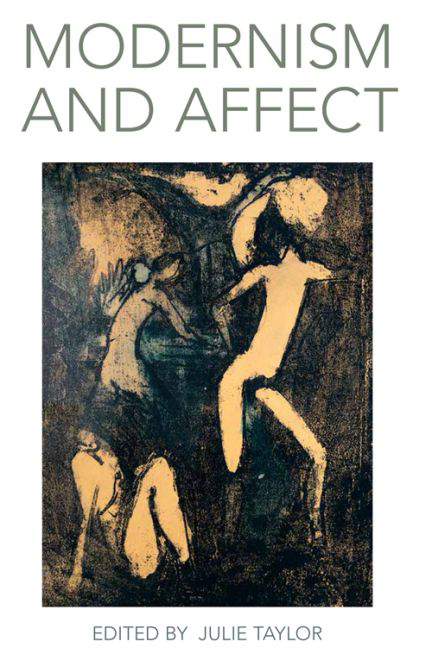Book contents
- Frontmatter
- Contents
- List of Illustrations
- Acknowledgements
- Notes on Contributors
- Introduction: Modernism and Affect
- 1 Mind, Body and Embarrassment in Henry James's The Awkward Age
- 2 The Trauma of Form: Death Drive as Affect in À la recherche du temps perdu
- 3 Logic of the Heart: Affective Ethical Valuing in T. E. Hulme and Max Scheler
- 4 The Line that Binds: Climbing Narratives, Ropework and Epistolary Practice
- 5 The Amplification of Affect: Tension, Intensity and Form in Modern Dance
- 6 Love and the Art Object
- 7 Animating Cane: Race, Affect, History and Jean Toomer
- 8 Fear and Precarious Life after Political Representation in Baudelaire
- 9 Bloom-Space of Theory: The Pleasure and the Bliss of Gerty MacDowell
- 10 From Odysseus to Rotpeter: Adorno and Kafka, Mimicry and Happiness
- 11 Making Happy, Happy-making: The Eameses and Communication by Design
- Index
5 - The Amplification of Affect: Tension, Intensity and Form in Modern Dance
Published online by Cambridge University Press: 15 September 2017
- Frontmatter
- Contents
- List of Illustrations
- Acknowledgements
- Notes on Contributors
- Introduction: Modernism and Affect
- 1 Mind, Body and Embarrassment in Henry James's The Awkward Age
- 2 The Trauma of Form: Death Drive as Affect in À la recherche du temps perdu
- 3 Logic of the Heart: Affective Ethical Valuing in T. E. Hulme and Max Scheler
- 4 The Line that Binds: Climbing Narratives, Ropework and Epistolary Practice
- 5 The Amplification of Affect: Tension, Intensity and Form in Modern Dance
- 6 Love and the Art Object
- 7 Animating Cane: Race, Affect, History and Jean Toomer
- 8 Fear and Precarious Life after Political Representation in Baudelaire
- 9 Bloom-Space of Theory: The Pleasure and the Bliss of Gerty MacDowell
- 10 From Odysseus to Rotpeter: Adorno and Kafka, Mimicry and Happiness
- 11 Making Happy, Happy-making: The Eameses and Communication by Design
- Index
Summary
The concept of affect in contemporary theory marks a return to the body as a site for the interplay of thought and feeling, and its importance derives from its refusal to reduce the body to the status of a container for either the mind or, by implication, the emotions. The body is the very condition for the transmission or distribution of affect both in terms of its capacity for movement and for perceptual engagement, whereas emotion is a particular type of containment and localisation of affect within the body. For modernist dance, the breadth of the theory of affect means that it is able to explain the radical shift from the sentimentality of the nineteenth century to the depersonalised abstract intensities of the avant-garde without arguing that this is based on the removal or suppression of feeling. Contours of feeling are always present but their modality changes depending on the structure of presentation, style and the particular manifestations of the gestural and intensive movements of the body. As a way of investigating this interrelationship, this chapter will focus on corporeal tension as a condition for understanding affectivity in modernist dance with reference to two key works of the Ballets Russes, Leonide Massine's Parade (1917) and Vaslav Nijinsky's L'aprèsmidi d'un faune (1912). These works deploy forms of abstraction that allow for, and indeed suggest, a depersonalisation of affect which can be described and analysed in terms of tension and intensity. Abstraction, affect and bodily tension are entwined in the material properties of these modernist dancing bodies in a way that challenged the representation of emotion in the nineteenth century; in particular, the belief that emotion constitutes a form of self-expression.
Studies of feeling, affect and emotion have long been linked to conscious emotional states, but in recent studies in the humanities the concept of affect refers to a much more general condition of being affected that incorporates both mind and body, or mind in body.
- Type
- Chapter
- Information
- Modernism and Affect , pp. 94 - 110Publisher: Edinburgh University PressPrint publication year: 2015



